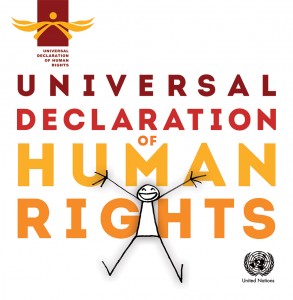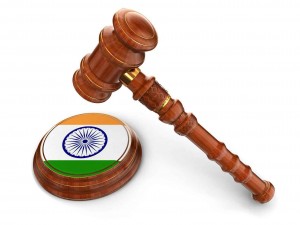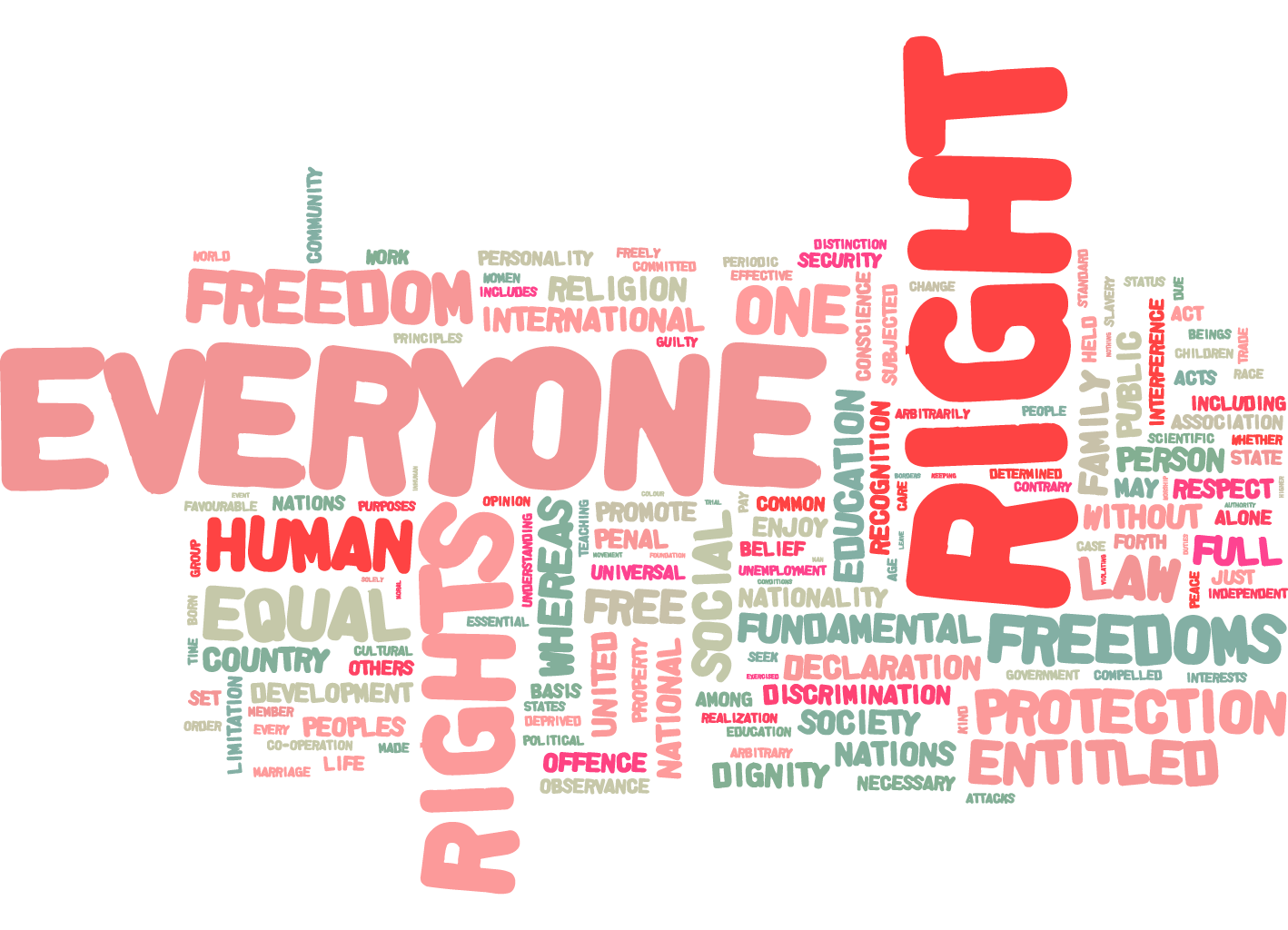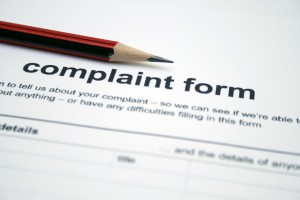In this blog post, Srishti Khindaria, a student of Amity Law School, Delhi, Guru Gobind Singh Indraprastha University, analyses the concept of human rights and how it emerged in India. Emphasis is laid upon the role of the National Human Rights Commission and how to file a complaint with the Commission in the case of violation of human rights.
Human Rights
Human Rights are those rights which are inherent to all human beings, irrespective of their nationality or ethnic origin, place of birth, current place of residence, sex, religion, color, language or any other status. These are rights everyone is equally entitled to, without any form of discrimination. These rights are interrelated, indivisible and interdependent.
 These are rights people are entitled to by humanity. Human Rights are universal in nature and are often laid down and guaranteed by law in the form of treaties, general principles, and customary international law and derived from other sources of international law.
These are rights people are entitled to by humanity. Human Rights are universal in nature and are often laid down and guaranteed by law in the form of treaties, general principles, and customary international law and derived from other sources of international law.
 This principle of universality of human rights is the considered to be the cornerstone of international human rights law. This principle was first set down clearly in the Universal Declaration of Human Rights (UDHR) in 1948 and has been reiterated in several international conventions on human rights.
This principle of universality of human rights is the considered to be the cornerstone of international human rights law. This principle was first set down clearly in the Universal Declaration of Human Rights (UDHR) in 1948 and has been reiterated in several international conventions on human rights.
Human rights are essential for the very existence of human beings and the development of their individual personalities. These demand respect and recognition for inherent dignity that every individual is entitled to be protected.
There are several types of Human Rights; these are as follows
Human rights include Social and Civil Rights, such as:
- Right to life, liberty and security of person.
- Right to property.
- Right to freedom from slavery and servitude
- Right to freedom from torture and cruelty
- Right to privacy
- Right to freedom of assembly
Human rights also cover certain Economic Rights, such as
- Right to adequate standard of living
- Right to social security
- Right to work
- Right to equal pay for equal work
- Right to form trade unions
- Right to rest and leisure
- Right to food and health
Human Rights further include Political Rights such as;
- Right to take part in political processes.
- Right to equal suffrage i.e. right to vote
- Right to nationality
- Right to equality before law and equal protection of law
- Right to judicial remedies and fair trials
- Right to take part in government affairs
Human Rights also cover Cultural Rights such as;
- Right to participate in cultural life of the community
- Right to enjoy art and to share advancements in the scientific field with the public
- Right to protection of moral and material interests
- Social and International Order in which Human Rights as provided in the Universal Declaration of Human Rights can be fully realized.
Human Rights in India
In India, the concept of Human Rights is not an idea adopted from the western countries. These rights symbolize the common heritage of India’s glorious past. Pre-independence the enjoyment of such rights was not available to all the segments as our society was ridden with the ills of the hierarchical caste system. The liberation movement from the British rule is seen as a movement focused on the attainment and protection of such rights.
Post-independence, the constitution makers, formulated the Constitution with the fundamental rights at its core. Through the United Nations Declaration of Human Rights, six types of fundamental rights were enshrined under Part III of the Indian Constitution. These fundamental rights were made available to all and there was “equal enjoyment of rights and opportunities” and to ensure “an egalitarian social order.” Special care was also taken to safeguard and protect the interests of the weaker sections of the society through the policy of “protective discrimination.” Reservation was provided for, and minorities were also allowed to set up their institutions to promote and keep their culture alive.
Part IV of our constitution enshrines Directive Principles of State Policy; these ensure socio-economic rights and justice.
National Human Rights Commission of India
In pursuance with the protection of the Human Rights Act of 1993 the first National Human Rights Commission of India was constituted on 29 September 1993, with Shri Ranganath Mishra, the ex-chief justice of India as its first chairperson.
Under Section 2 of the Protection of Human Rights Act, 1903, “human rights” have been defined as rights relating to life, equality, liberty and dignity of the individual as enshrined in the Constitution or guaranteed by International Covenants and enforceable by courts in India.
The functions to be performed by the Commission are as follows;
- Inquire, into a complaint filed by the victim himself or any person on his behalf, or taken up by its initiative.
- Intervene in any proceedings involving allegations of violation of human rights pending before any other court with the prior approval of such a court.
- Conduct visits to any jail or any institution under the control of the State Government, where people have been logged or detained for the purpose of rehabilitation, reformation or treatment.
- Review the safeguards under the Constitution or any law for the time being in force for the protection of human rights and recommend measures for their effective implementation.
- Review factors that inhibit the enjoyment of human rights including terrorism and suggest appropriate remedial measures.
- Promote and undertake research in the field of human rights.
- Encourage efforts of NGOs and other institutions working in the field of promotion and protection of human rights.
- Study treaties and other international instruments on the subject of human rights and suggest ways for their effective implementation.
- Any other functions that it may consider necessary for the promotion of human rights.
The commission enjoys autonomy in a lot of aspects; the method of appointment of members, the duration of tenure and other statutory guarantees are assured to it. The commission also enjoys full financial autonomy.
The composition of the Commission is as follows:
- The National Human Rights Commission shall consist of Chairperson and any other such members appointed by the president of India. The Chairperson must be a former chief justice of the Supreme Court of India.
- Members are appointed by recommendations of a committee which is headed by the Prime Minister as the Chairperson, the Home Minister, The Speaker of the Lok Sabha, the leaders of opposition in the Lok and Rajya Sabha and the Deputy Chairman of the Rajya Sabha.
The current members according to the NHRC website is:
| Justice H L Dattu | Chairperson |
| Justice Cyriac Joseph | Member |
| Justice D. Murugesan | Member |
| Sharad Chandra Sinha | Member |
| Chairperson, National Commission for Minorities | Ex-officio Member |
| Chairperson, National Commission for Scheduled Castes | Ex-officio Member |
| Chairperson, National Commission for Scheduled Tribes | Ex-officio Member |
| Chairperson, National Commission for Women | Ex-officio Member |
Procedure of Filing a Complaint
Who can make the complaint? The complaint may be lodged with the commission by the victim himself or any person acting on his behalf.
On what grounds can a complaint be filed? A complaint can be filed on the following grounds:
- Violation of any human rights or any abetment thereof
- Negligence by a public servant in the prevention of such violation
What language can a complaint be filed in? The complaint can be drafted in English, Hindi or any language included in the 8th Schedule of the Constitution.
In what time frame can a complaint be filed? The jurisdiction of the National Human Rights Commission is limited to complaints filed within one year from the date on which the act constituting a violation of human rights is alleged to have been committed.
By what modes can a complaint be sent? The complaint can be sent by the following modes;
- By post; National Human Rights Commission
Manav Adhikar Bhawan Block-C,
GPO Complex, INA, New Delhi – 110023 - By telegram
- By fax; (011) 23386521
- By email; [email protected] (general)/ [email protected] (for complaints)
- Complaints maybe filed online by clicking on the following link: http://164.100.51.57/HRComplaint/NewHRComplaint.aspx
- Complaints can be made in the 24 hours mobile number of the Commission: +91 9810298900
Does the commission charge any fee from the complainants? No, the Commission does not charge any fee for filing of the complaints.
What kind of complaints is not entertained by the Commission? Ordinarily, the Commission does not entertain any complaints of the following nature;
- Complaints regarding incidents that occurred more than a year before the filing of the complaint.
- Complaints concerning to matters sub-judice in nature that is; matters already pending or being heard in the court of law or tribunal.
- Complaints which are trivial or frivolous in nature
- Complaints which are vague, anonymous and pseudo-anonymous in nature.
- Complaints which pertain to service matters.
- Complaints which are illegible in nature
- Matters still pending before the State Human Rights Commission or any other Commission
- Complaints which relate to civil disputes such as property rights, contractual obligations, etc.
- Allegations, which do not point to the violation of any specific type pf human right.
- Any matter covered by a judicial verdict/decision of the commission
What must the complaint contain? The complaint must disclose a clear picture of the matter leading to the complaint. The complaint must contain clearly all of the following clearly, along with other aspects
- The name of the victim
- The age of the victim
- The religion/caste of the victim
- The State to which the incident relates.
- The District to which the incident relates.
- Date on which the incident occurred.
The documents enclosed in support of allegations, if any, must be easy to read and decipher. The complaints are expected to be self-contained.
It is advisable that the format prescribed on the NHRC website be followed. It can be downloaded from http://nhrc.nic.in/Documents/Compformat.pdf
 Serato DJ Crack 2025Serato DJ PRO Crack
Serato DJ Crack 2025Serato DJ PRO Crack












 Allow notifications
Allow notifications



AFTER DOING SO MANY AFFORTS IF NONE OF YOU IS DOING ANYTHING REGARDING MY CASE ITS NOT GOODS FOR A COMMON MEN OF INDIA
Respected Sir/Madam
I contact Rajasthan police, they said your case is of out of Rajasthan so they cant do anything in this case. They said that my case is related to delhi so delhi police will look after the case i have already complaint form this Fir Complaint No: C8XXXXXXXXXXXXX2019/05169 Date 04.02.2018 time 8.59 and C8816281620012019/06781 Date 24-02-2019 at 10.52pm (copy enclosed) to digital police delhi But they have not taken any action till to day
I have Complaint to all the Department but no one is there to hear or solved my Problem, so this is my last request to you.
sir
PLEASE LOOK INTO THE MATTER AND TAKE NECESSARY ACTION IMMEDIATELY REGARDING REFUND OF MONEY
Fraud and cheating with me this companey
online shopping company – http://www.a2zcitystore.com/ fraud with me (+9319363217,+917065055522,+918745874593+919355008916,+919355395821,+919718000383.+918750909097,+919355030947,+917065055521,+918745874593)
You have told me that I have a gift of LED TV and for that I have deposit some Ru Transaction Date:-17/11/2018 Mode of Payment:- JdPay Transaction amount- Rs.6119/- Transaction Date:-21/11/2018 Mode of Payment:- JdPay Transaction amount- Rs.11000/- Transaction Date:-05/12/2018 Mode of Payment:- JDPay Transaction amount- Rs.13948/- Transaction Date:-12/12/2018 Mode of Payment:- JDPay Transaction amount- Rs.22500/- Transaction Date:-15/12/2018 Mode of Payment:- JDPay Transaction amount- Rs.20382/- Transaction Date:-30/01/2019 Mode of Payment:- JDPay Transaction amount- Rs.35603/- So total all Amout – 1,23,949 (one hundred twenty three thousand nine hundred forty nine) through just dile than you told me that my led has gone for insurance you have given me wrong way bill no than agaIn you said that my LED TV is damaged by couirer person and you promiss will give me Ru. 296186 (Tow lakh Nintysix Thousing one hunderd Eighty six) cash.
you have taken my and my nominees details and all the bank account no also, now I am regularly making calls at least 80 call per day on this no +919319363217 but not getting any response from your side. I am in contact of shri Vijay Sexena only he told me that he will alllow me to talk with soniya mam banking branch and told me that he will alow me to talk after one or two horus.
than he told me to deposit money from nominees acount by just dial and I have deposit 25626.00 (Twenty-Five Thousand Six Hundred Twenty-Six ) for nominees acount verification.
you are continuously harrasing me and till date I have not got my money back .
Till date I have deposited Ru. 1,23,949 (one hundred twenty three thousand nine hundred forty nine) and I have not get any refund .
dheerendra sharma
9829075137/9413975137
jodhpur rajasthan
Ek shopkeeper ne mujhe aapne shop insult kr ke. Or apna things bechne se mna kr diya to kya mai article 17 ke anusar complain kr skti
Please send your email id to [email protected]
Thanks
24 hours complaint facility over phone is not functional. That itself shows that the commission functionality is full of flaws. Atleast make that functional to begin with…
Thanks for enlightening on human rights.
Respected Sir,
Sub: PLIGHT OF SENIOR CITIZENS AGED 75 PLUS UNDERGOING HUMAN RIGHT VIOLATION INFLICTED AND PERPETRATED AGAINST THE ERSTWHILE 5512 (NOW SURVIVING HARDLY 2700) FOOD DEPARTMENT EMPLOYEES EAGERLY AWAITING TO SEE THEIR PENSION IN THEIR LIFE
I submit that the Food Department has sent a letter No.19012/5/2016-FC-3 dated 8th September 2017 (copy enclosed) informing me that a detailed examination of the matter was done in consultation with other Departments and that after considering all aspects it was decided not to amend the FC Act to allow the retired persons to opt for the system of pension. A copy of this letter is enclosed for ready reference. This communication is quite contrary to the letter and spirit of the Food Ministry letter No.19012/7/2016-FC-3 dated 5th December 2016 addressed to NHRC which was sent to me by NHRC ( on which I had already submitted my comments on 21/07/2017 as directed by the Commission and the Commission in turn had sent copy of the same to the Department of Food as seen from their Website) as also the stand taken by the Ministry while accepting the recommendations of the Committee on petition of 14th Lok sabha.
The recommendations of the Committee on petitions were accepted by the then Hon’ble Minister for Consumer Affairs, Food & Public Distribution and orders for amendment of Food Corporation Act 1964 were passed by him with certain observations produced in my comments dated 21.7.2017 salient features of the same may kindly be recollected as follows:
Keeping in view:-
a)The solemn assurance given by Lok Sabha, during discussion on the FCI Amendment bill, that THE CONDITIONS OF SERVICE OF EMPLOYEES WOULD IN NO WAY BECOME LESS FAVOURABLE THAN THEIR COUNTERPARTS IN GOVERNMENT SERVICE.
b)THE DEMAND OF THE FOOD TRANSFEREES FOR COVERAGE UNDER LIBERALISED PENSION SCHEME WAS ERRONEOUSLY TURNED DOWN BY THE DEPTT OF FPD AND MINISTRY OF FINANCE ON THE GROUND THAT THE FOOD TRANSFEREES CONSCIOUSLY OPTED TO REMAIN UNDER THE CPF SCHEME, THOUGH IN REALITY, AS PER THE ORDERS OF 1.5.1987, ALL CPF BENEFICIARIES INCLUDING FOOD TRANSFEREES AUTOMATICALLY COME UNDER THE PENSION SCHEME OF 1.5.1987 AND NO OPTION WAS REQUIRED.
c)THE PROCEEDINGS OF PARLIAMENT INCLUDING THE PROCEEDINGS OF PARLIAMENTARY COMMITTEE(WHICH IS ALSO TREATED AS INTERNAL PROCEEDINGS, AS PER THE PROVISIONS OF CONSTITUTION) STRONGLY RECOMMENDED THE CAUSE OF FOOD TRANSFEREES, I AM CONVINCED THERE HAS BEEN A CLEAR MISCARRIAGE OF JUSTICE IN DEALING WITH THE LEGITIMATE CLAIM OF FOOD TRANSFEREES OF FCI AND EQUITY , JUSTICE AND GOOD CONSCIENCE DEMAND THAT THE ISSUE BE REVISITED.
ACCORDINGLY I FEEL THAT JUST AND PROPER SOLUTION WOULD BE TO ACCEPT THE RECOMMENDATIONS OF THE PETITIONS COMMITTEE AND TO PROVIDE THAT THE FOOD TRANSFEREES WOULD BE ENTITLED TO SWITCH OVER TO THE PENSION SCHEME OF THE CENTRAL GOVT AS HAS BEEN PROVIDED FOR UNDER OM DATED 1.5..1987.
A Cabinet Note for amendment of Food Corporation Act 1964 was submitted to Cabinet Secretariat and the PMO vide its Memorandum No. H-11013/2/22011/FC-3 dated 12.3.2015 AFTER OBTAINING THE CONCURRENCE OF THE MINISTRY OF FINANCE DEPTT OF EXPENDITURE DULY APPROVED BY SHRI ARUN JAITELY HON’BLE FINANCE MINISTER VIDE THEIR LETTER NO.25(3)/ev/2005 DATED 31.12.2014 ( Copy enclosed ).
THE PROPOSAL WAS ALSO CONCURRED BY THE LAW MINISTRY. WHILE CONVEYING THEIR CONCURRENCE, THE LAW MINISTRY HAS SPECIFICALLY MENTIONED THAT IT IS LEGAL AND CONSTITUTIONAL RIGHT OF THE FOOD TRANSFEREES TO GET RE-OPTION.
Similarly the Ministry of Personnel, Public Grievances & Pension, while commenting on the Draft Cabinet Note HAVE TWICE STATED THAT THE MATTER REGARDING RETIREMENT BENEFITS TO THE EMPLOYEES OF AUTONOMOUS BODIES IS TO BE DECIDED BY THE ADMINISTRATIVE MINISTRY IN CONSULTATION WITH THE DEPTT OF EXPENDITURE. The Ministry of Consumer Affairs & Public Distribution has already obtained the concurrence of Deptt of Expenditure as stated above which fulfills the requirement of Deptt of Pension.
These are the only three concerned departments whose concurrence was required to be taken while submitting the Cabinet Note, which formality was completed by the Deptt of Food & Public Distribution. THEREFORE IT IS NOT UNDERSTOOD AS TO WHICH OF THE OTHER DEPARTMENTS WERE CONSULTED BY THEM WHO WERE NOT IN FAVOUR OF AMENDMENT OF FC ACT.
Every time when-ever an individual has raised a grievance or a VIP has addressed the Minister OF CAF & Public Distribution, about the amendment of Act, the MOCA& PD has replied that the information about financial implication is awaited from FCI.. whereas the information WAS SUPPLIED BY FCI thrice on 26,4,2016, 3.6.2016 and 5.12.2016 and no further information was awaited from FCI.
IT is SURPRISING THAT THE MINISTRY OF CONSUMER AFFAIRS, FOOD & PUBLIC DISTRIBUTION HAS SHIFTED THEIR STAND ON FLIMSY GROUNDS AFTER ACCEPTING THE RECOMMENDATIONS OF THE COMMITTEE ON PETITIONS AND COMMITTING TO THEM TO AMEND THE FOOD CORPORATION ACT 1964 TO MAKE PROVISION FOR RE-OPTION SO THAT THE FOOD TRANSFEREES COULD OPT FOR LIBERALISED PENSION SCHEME AS INTRODUCED BY DOP&PW. VIDE ITS Memorandum dated 1,5,1987 (copy enclosed ) .
The Cabinet Note submitted on 12.3.15 for amendment of F.C.Act was returned by Prime Minister’s Office vide ID Note No.730/31/C/232/2013 dated 08-09-2015 and desired the Ministry of Food and Public Distribution to examine whether there is need for amendment in the FCI Act and whether the executive orders could meet the end of justice by implementing the Ministry of Personnel, Public Grievances & pensions Office Memorandum No.4/1/87-PIIC-! Dated 1st May, 1987.
The Ministry of CAF&PD vide its O.M. dated 28.9.2015( approached the Deptt. of Pension & Pensioners Welfare for issuing the requisite Circular/Executive Order as issued by them earlier vide their OM dated 1st May 1987 for extending the benefit of Liberalised Pension to the food transferees who were continuing with CPF Scheme without amending the Food Corporation Act 1964.
That the Deptt of Pension & Pensioner’s Welfare vide its O.M. dated 29.10.2015 has stated that the Department of Pension & Pensioners Welfare is the nodal Ministry for formulation of pension policy for Central Govt Employees only. Food Corporation of India is an Autonomous Organisation functioning under the administrative control of D/O Food & Public Distribution. Therefore, Department of Food and PD may examine whether there is any need for amendment in the Food Corporation Act 1964 for the proposed changes proposed by the Department in their proposal in consultation with Ministry of Law. As a matter of fact the Food Department almost decided to examine the feasibility of issuing an executive order under Department of Pension & Pensioners Welfare’s OM dated 01.05.1987 as intimated in their letter No.19012/6/2015-FC-3 dated 15/01/2016 and 28/01/2016. As the opinion of Ministry of Law for amending the FC Act has now been overruled by Department of Food it logically follows that the Ministry has to issue an executive order for implementing the Pension Ministrys office Menorandum dated 01/05/1987.
It is a settled law as Hon’ble Supreme court had held that for pension payment no financial implication need to be taken into consideration while sanctioning pension to retired employees. Pension is the deferred portion of compensation for long and devoted services rendered by an employee with the employer. It is a social welfare measure as well. Article 21 of the Constitution of India guarantees everyone a fundamental right to livelihood, which includes entitlement to receive his deferred wages in accordance with rules, after retirement. Non-payment of retiral benefits therefore, is a violation of one’s fundamental right under Article 21. The right to receive the same is not only a fundamental right but is also a right to property under Article 300-A of Constitution of India which cannot be taken away except by Authority of Law. Nevertheless that the Finance Ministry had already given clearance for Amending 12A of FC Act for enabling food transferee to opt for Liberalized pension in terms of IVTH Pay commission recommendations,the Food Department now invented fresh trouble by raising that financial implications has to be worked out by the FCI. Therefore there appears to be incessant delays owing mostly to the lackadaisical manner in which our case is handled. Is it not inhuman on the part of Food Department to have delayed our case under one pretext or the other Sir?
In view of the foregoing, I pray that the Hon’ble Food, Civil Supplies and Public Distribution may kindly be pleased to issue necessary administrative initiative and issue Executive orders to enable the food transferees to get Central Govt Liberalised Pension in accordance with the OM dated 1.5.1987 and render justice.
For this act of kindness we the food transferees and their widows shall pray to almighty for your long life,
With kind regards,
Yours Faithfully,
(P. Sadagopan)
57 Raju Street, West Mambalam Chennai 600033 Tamil Nadu
Phone 9884717943/04424899133
Dated 13/10/2017
If a complainant is not satisfied with the NHRC’s ruling/order on his complaint, what options are available to him by way of appeal for a review of the NHRC ruling/order? Does NHRC entertain an appeal or a review petition against its order or is the complainant required to go to a high court or Supreme Court for this?
Thanks in advance for your response.
I think it was implemented only theoretically not in practically. maximum time we know who are doing crimes but they are slewed due to not available of evidence.We called to police number but they will reach after accidents happened and sometimes we see they answered please come to police station and give the affair by writing.I want to know then why we implemented mobile technology and all new technology.let us think about sunanda puskar and many who are attempting suicide and many crimes.even some staffs of human rights commission,police dept staffs,cbi staffs are not safe also.If they are not safe then general public will how they safe???